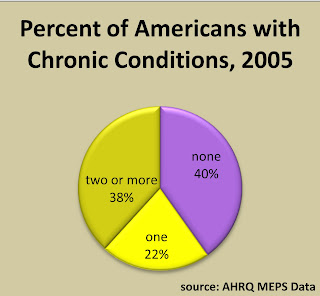Herman Cain’s ascendant Presidential campaign brings into
focus the limited health policy thinking that has dominated the campaign so
far.
Here are our current major health policy challenges:
- Reversing the trend toward lower investments in the public health and prevention activities that have accounted for half of our increased longevity in the last century;
- Assuring fair coverage of the chronic conditions, including mental illness, cardiovascular disease, and cancers, that affect 60% of our population;
- Giving even the uninsured 16% of our population access to high quality, comprehensive, integrated primary, specialty, and hospital care; and
- Figuring out how best to pay for all this.
Despite the urgency
of these challenges, the current health policy debate can be condensed into a four
word sound bite – “Repeal Obamacare Individual Mandate.”
Here are the specifics of what the candidates have been
talking about the past couple of weeks.
Mitt Romney and Newt Gingrich are fighting over whether
Romney got the idea for the “individual mandate” from Gingrich or the Heritage
Foundation. (Both, it seems, from their
exchange in the last debate.)
Ron Paul wants to abolish our health care system in its
entirety and replace it in part with free care “as a charitable
benefit provided by doctors” for all poor people.
Rick Perry’s first national health policy headline came when
he advocated eliminating the Medicaid program that pays for long-term nursing
and home care for elders and people with disabilities. His last came this past weekend when he questioned
Hawaii’s vital statistics record-keeping – at least where Barack Obama’s birth
certificate is concerned.
And Herman Cain, the self-proclaimed a “problem solver,” solved
his business’s financial problems in part by helping
to pay for health insurance for only 17% of his employees.
As Cain’s sketchy health
care plan shows, his plans for what he would do for the other 83% are few
and far between.
First, he wants to sell insurance across state lines. The Affordable Care Act already will permit
this, but there’s a catch. The only
policies that could be sold across state lines must meet minimum coverage standards.
He opposes this. So
when he favors selling insurance across state lines, he doesn’t care if it actually
covers anything for which you might need insurance, such as cancer, heart
disease, mental illness, comprehensive primary care, drugs, or even most
hospital stays.
Second, even though it would violate his 9% flat tax
proposal, he wants to allow individuals who buy insurance to be able to deduct
it from their income tax.
Why? So that businesses
could eliminate group health insurance from their employee benefits package –
as Cain himself did – and let employees pay for the more expensive individual
plans on their own.
Third, he wants to expand the use of health savings
accounts, into which individuals and families would have to deposit their own
money to cover the thousands of dollars of deductibles in the stripped down
insurance policies that would flood the market if his “across state lines” plan
passed.
They might get a tax deduction for this – if he violated his
9% flat tax policy again – but that’s just another way of shifting even more of
the cost of health care to individuals and the federal government.
Citizen Cain refers
to these proposals as “patient-centered” reforms. But patient-centeredness involves most everything
that is absent from “Cainsian” health economics.
It is about promoting health and well-being and improving
access to affordable, quality care, not making insurance companies more
profitable.
At least Cain offers a plan on his web site, unlike family-first
candidate Rick Santorum. And in a nod to
Michele Bachmann, Cain did acknowledge in a recent debate – without mentioning
her – that he lifted much of his health plan from legislation co-sponsored by
Bachmann (HR3400) in 2009.
Herman Cain talks a good game about the “sacred
patient-doctor relationship,” but his slapped-together health plan is little
more than a slap in the face to people with serious health and wellness needs. There’s nothing in it about wellness,
prevention, or chronic disease management.
There’s nothing about access and quality.
It’s all about stringing together a few of the worst proposals
for individuals, families, and taxpaying citizens, and dressing them up as an
alternative to the Affordable Care Act.
Even raising Cain to
new poll heights won’t make him able to sell this.
If you have questions about this column or would like to receive an email notifying you when new Our Health Policy Matters columns are published, please email gionfriddopaul@gmail.com.

Comments
Post a Comment